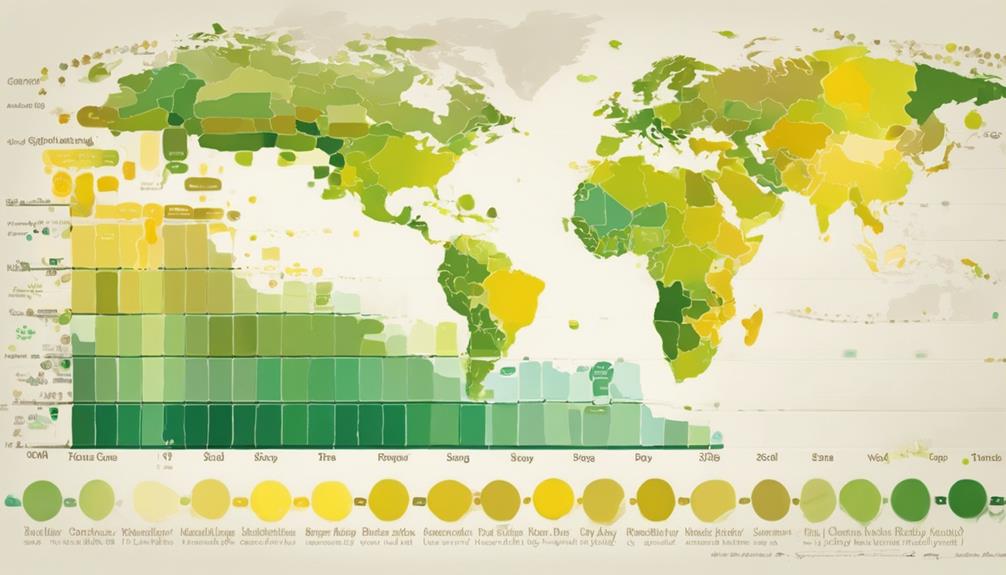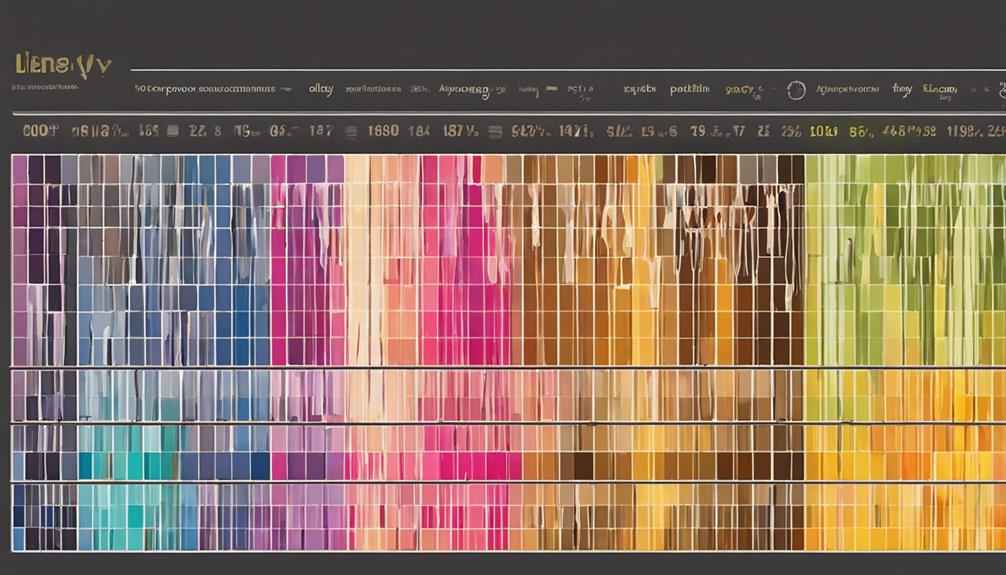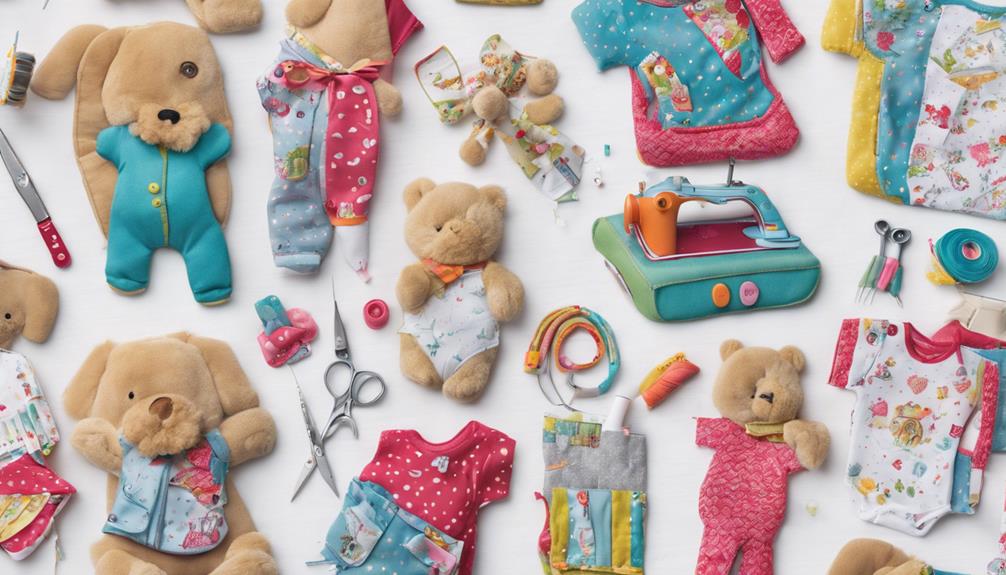As we navigate the mysterious world of newborns, deciphering the enigma of their diaper contents becomes an essential task for caregivers.
Wondering how many times a tiny human should pass stool in a day can be perplexing.
Let's unravel the subtle nuances of newborn poop patterns and disclose the secrets behind what's considered normal.
Key Takeaways
- Breastfed babies may have up to 6 stools daily in the first 6 weeks, while formula-fed babies typically have 1-4 bowel movements.
- Monitoring meconium passage in the first 24-48 hours is crucial for assessing newborns' bowel function.
- Changes in poop consistency or frequency post-6 weeks should be noted and discussed with a pediatrician.
- Healthcare providers offer valuable insights and support in understanding and managing newborn poop patterns.
Normal Newborn Poop Frequency
Discussing the normal frequency of newborn poop provides important insight into their digestive health and well-being in the early days of life. When it comes to newborns, their bowel movements can vary depending on whether they're breastfed or formula-fed. Breastfed babies tend to have more frequent bowel movements, sometimes after each nursing session. This can result in up to six or more stools per day during the initial six weeks. On the other hand, formula-fed newborns typically have 1-4 bowel movements daily, with larger but less frequent stools compared to breastfed infants.
Monitoring your newborn's stool frequency is essential in understanding their digestion and overall health. Remember, passing meconium within the first 24-48 hours after birth is a positive sign of proper bowel function. Whether your baby's poop schedule aligns with these general guidelines or not, what's most important is that they're comfortable and their stools are soft. If you have any concerns about your newborn's bowel movements, don't hesitate to consult with a healthcare provider for guidance in these early days of life.
Breastfed Baby Poop Schedule

When it comes to breastfed newborns, their poop schedule is a key indicator of their digestive health and development, especially in the initial weeks of life. Breastfed baby poop is typically mustard-yellow in color with a seedy texture, reflecting the undigested milk curds.
In the early stages, breastfed babies may have bowel movements multiple times a day, sometimes as frequent as six or more in the first six weeks. However, as the baby's digestive system matures, the frequency of bowel movements usually decreases.
There are individual differences among breastfed babies when it comes to poop schedules. While some may continue to poop several times a day, others might have a less frequent pattern, even going up to a week without a bowel movement. These variations can be influenced by feeding patterns and the unique characteristics of each newborn's digestive system.
Formula-Fed Baby Poop Frequency
Formula-fed newborns typically experience a range of 1-4 bowel movements per day, with the frequency and consistency of their poop varying based on individual digestion. Unlike breastfed babies, formula-fed infants tend to have firmer and more paste-like stools.
Monitoring the frequency of bowel movements in formula-fed babies is important for tracking their digestive health. Any changes in the regularity of bowel movements should be carefully noted. If you notice a significant decrease or increase in the number of daily poops, or if there are alterations in consistency, it's essential to consult with a pediatrician. These changes could indicate issues with digestion or formula intolerance.
Post-Newborn Poop Patterns

Shifting from the newborn stage, understanding the evolving poop patterns of your baby becomes important for monitoring their digestive health and overall well-being. As babies grow, their poop frequency may decrease to 1-2 times a week after the first six weeks, provided they are gaining weight and are healthy. Introducing solid foods can have a major impact on poop patterns and consistency as their digestive system continues to develop. Changes in poop consistency and odor are normal as your baby's diet diversifies. However, diarrhea and constipation can affect stool characteristics, necessitating attention and possibly intervention. If you notice blood in your baby's stool, it is essential to promptly seek evaluation from a healthcare provider for proper assessment and management.
| Aspect | Details |
|---|---|
| Diaper Changes | Decrease in frequency to 1-2 times a week after the initial six weeks |
| Digestive System | Development influenced by the introduction of solid foods and diet diversification |
| Stool Characteristics | Changes in consistency and odor as the baby grows |
Understanding these post-newborn poop patterns is crucial for ensuring your baby's well-being and addressing any concerns promptly.
Consulting Healthcare Providers
Consulting with healthcare providers is important for addressing concerns about a newborn's poop frequency and ensuring the baby's overall health and well-being. Healthcare providers, especially pediatricians, can offer valuable insights into the normal range of poop frequency for newborns. They're equipped to determine if a newborn's poop habits fall within a healthy spectrum.
Seeking guidance from healthcare professionals not only provides reassurance but also supports parents in understanding and managing their newborn's poop patterns. In cases where there are significant changes or concerns about the frequency of a newborn's poop, healthcare providers can assess the situation and decide if any intervention is necessary.
Open communication with healthcare providers is essential for monitoring your newborn's poop frequency and addressing any potential issues promptly. Remember, your healthcare team is there to offer support and guidance, so don't hesitate to reach out with any concerns about your newborn's poop habits.
Frequently Asked Questions
How Often Should a Newborn Poop Chart?
We understand the concern around newborn poop frequency. It varies, with breastfed babies having more bowel movements than formula-fed ones. Monitoring changes is vital, so consult a healthcare provider if you notice irregular patterns.
How Many Poop per Day Is Normal for Newborn?
We can expect newborns to poop multiple times a day, showcasing the healthy functioning of their digestive system. Monitoring these movements is important for their well-being. Each baby's rhythm is unique, but variation is normal.
What Is a Normal Poop Schedule for a Baby?
As parents, we comprehend the curiosity about your baby's poop schedule. It's normal for newborns to have varying bowel movement frequencies. Whether breastfeeding or formula feeding, changes in poop habits are expected as your baby's digestive system develops.
How Many Times a Day Should a Newborn Poop on Formula?
I comprehend the concern about how often a newborn on formula should poop. Frequency can vary but generally, 1-4 times a day is typical. Remember, individual differences and feeding routines play a role. If worried, consult a pediatrician.
Conclusion
Remember, when it comes to newborn poop, there's no one-size-fits-all answer. Each baby has their own unique poop schedule, and that's perfectly normal!
Keep an eye on your little one's diaper changes and trust your instincts. If you have any concerns or questions, don't hesitate to reach out to your healthcare provider for guidance.
Stay savvy, stay informed, and remember, poop patterns vary, but communication with your pediatrician is key!










